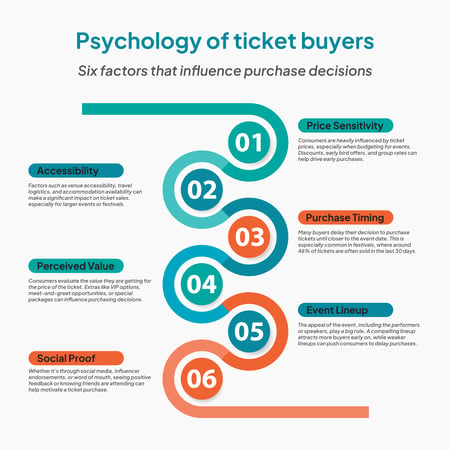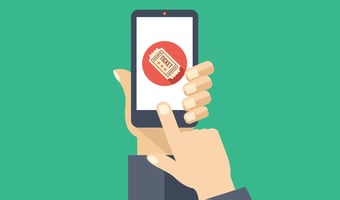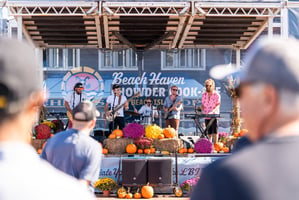As an event organizer, the goal is always to sell out an event. The best way to do this is to understand the anatomy of why a ticket buyer does what they do. Understanding the psychology behind a ticket buyer's actions can be the difference between a sold-out event and one that falls flat. Let's explore the six driving factors that influence ticket purchase behavior: price sensitivity, accessibility, purchase timing, value, event lineup, and social proof.
Table of contents:
1. Price sensitivity
2. Accessibility
3. Purchase timing
4. Perceived value
5. Event lineup
6. Social proof
1. Price sensitivity
Unsurprisingly, price is one of the top deciding factors in whether a consumer will purchase a product.
According to a Statista report in 2022, Generation Z and Millennials tend to be more responsive to time-sensitive deals than older generations, with a higher chance of waiting for a discount before buying.
Offering such discounts can be the difference between a purchased ticket and an ignored offer. Around 39% of consumers will likely speed up purchasing decisions when presented with a coupon or a time-limited offer. This showcases the importance of offering discounts, coupons, or exclusive deals to your audience to incentivize them to purchase a ticket.
On the other hand, pricing tickets correctly is also vital.
Looking at the average pricing for the event being advertised is important. According to McKinsey & Company, 80-90% of 'wrong' pricing comes from prices that are too low, rather than too high. When a product costs too little, consumers may not see its value. Pricing correctly and at a tier that demonstrates the event's value benefits both the organizer and the ticket purchaser.
Here are some pricing strategies to consider when setting up prices:
Value-based pricing
|
Cost-plus pricing
|
Competition-based pricing
|
Dynamic-based pricing
|
| These are prices based on the value that attendees place on the item. For example, check other similar events to see what attendees are paying. Then, set your price based on that information. |
This is setting prices higher than what the event costs to generate profit.
This method works best for smaller events. It is less effective for larger events. Larger events have higher overhead costs. They also often lack the right perceived market value.
|
This is setting prices based on what competitors are selling their tickets for. This practice is similar to value-based pricing. However, it focuses on competition instead of what the consumer thinks the product is worth. |
These are prices based on market conditions. A great example of dynamic pricing is gas.
Gas prices fluctuate depending on supply and demand, seasonal changes, market changes, etc. Similarly, these ticket prices would be dependent on supply and demand. If there is a large demand, prices will shift higher. If there is a small demand, prices will shift lower.
|
2. Accessibility
Another concern ticket buyers have when purchasing an event ticket is how accessible the event is to them. Accessibility is not just about the venue. It also includes travel, accommodations, parking, and overall convenience.
For example, events with accessible parking, public transport options, and walkable venues see up to 20% higher ticket sales and for good reason (Center for Event Research).
Location is also a significant factor for many when deciding whether to buy a ticket.
As an organizer, it's wise to pick a venue that is easy for attendees to reach. The venue should also meet their needs. 70% of attendees are more likely to attend events located near public transportation, which can be another factor to consider when planning (Urban Land Institute).
Lastly, parking is also a significant concern, especially in crowded cities or areas lacking infrastructure for large crowds.
A lack of accessible parking deters many potential attendees, especially those who drive from suburban or rural areas. To combat these concerns, providing a map beforehand can help increase the likelihood of ticket purchases. Venues with accessible entries and easy-to-follow maps enhance the experience for 65% of attendees (Meeting Professionals International).
3. Purchase timing
When it comes to purchasing a ticket, timing is everything.
Many buyers wait to decide until closer to the event date. They prefer to have more details or to feel confident about their choice. This behavior is especially common in the festival scene, where up to 46% of tickets may be sold in the last 30 days before the event.
For trade shows, 67% of people book their tickets 1 week to 3 months in advance. These statistics can help you understand when to advertise to ticket buyers and nudge them into purchasing sooner through discounts.
Event organizers can offer their attendees several perks. These include VIP benefits like T-shirts, backstage passes, and extra treats. They can also provide exclusive discount codes for specific groups, such as veterans, students, or teachers. Another option is flash sales, where attendees can get 15% off if they buy within 24 hours. Lastly, early bird pricing can encourage potential attendees to buy early. By offering a discount for early tickets, an event organizer can secure attendees quickly.
4. Perceived value
Value perception can be the deciding factor when it comes to ticket purchases. Consumers want to know they are getting their money's worth.
Special perks like VIP options, meet-and-greet chances, and exclusive packages can increase the value of a ticket. These benefits make buyers feel they are getting a unique experience. Highlighting these value-added elements in your promotions can encourage sales, even at higher price points.





